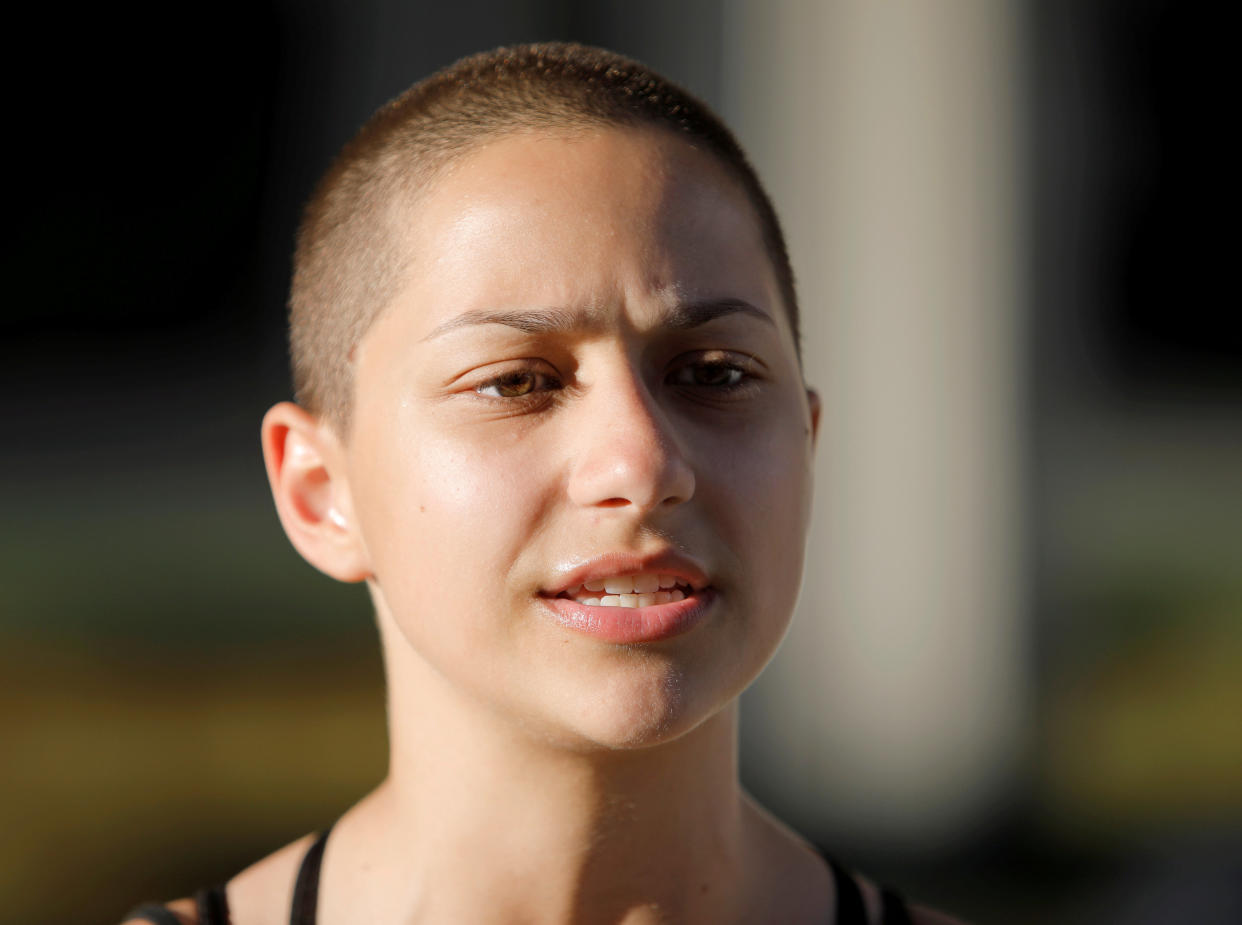Florida students are filling TV with antiviolence eloquence

The horrible massacre of 17 people at Marjory Stoneman Douglas High School has had only one positive result: It’s inspired a significant number of students to say, with great eloquence, that this bloody phenomenon — a school shooting executed by a lone gunman — needs to stop. Watching television, we’ve been seeing an array of highly articulate and impassioned young people speak to TV news cameras with a directness that’s rare in any situation, let alone one as traumatic as the Stoneman Douglas High tragedy.
Almost as soon as the shooter had been apprehended, cable and network news found a new set of interviewees in Parkland, Fla. In addition to testimony from the agonized survivors, parents, teachers, law enforcement officials, and first responders, there was an immediate cohort of students who recognized this event for what it was: another example of gun violence that would be a media event swallowing up everything else on television for the next 24 or 48 hours. Students who were able to marshal their thoughts during this crucial period began to immediately call for changes in our society. They were students like Cameron Kasky, who gave remarkably coherent, well-thought-through interviews with numerous outlets, including CNN’s Anderson Cooper.
Kasky was not alone. Other students, such as David Hogg and Emma Gonzalez, also became familiar faces on TV news. As the networks resumed their regular programming, cable news continued to feature stories about Stoneman Douglas High students and their plans to continue to agitate for change. Listening to these students, I was struck by how rare it is to see calm yet engaged adolescents on TV, earnest young people choosing their words carefully and framing complex arguments. Whether in scripted or on reality-TV shows, teens are overwhelmingly presented as being sullen depressives or wisecracking brats or angry rebels or shut-down zombies glued to their phone screens. How exhilarating and novel it is to be reminded that there are a lot of young people out there who are going to inherit this country who will be fully capable of taking on that great challenge.
These students are mobilizing for a “March for Our Lives” in Washington, D.C., on March 24. That’s good, and shrewd: Scheduling it for a month from now not only allows for time to plan events all around the country but also guarantees that the Stoneman Douglas tragedy won’t fade from media consciousness after a week or so, as other bloodbaths have. The stated purpose of the march is to rally for gun control, mental health issues, and school safety. It’s an ecumenical list, one that ought to be embraced by everyone, no matter what your political affiliation or position on gun control is. But, of course, as the bodies of dead students have been buried, political animus rises up — on social media there is already a huge amount of bile being directed at students who are being told to shut up, that they don’t know enough about guns to have an opinion, and worse sentiments.
Sometimes I look at Emma Gonzalez and hear her speak criticisms of government officials who don’t want to change any laws in these areas, and I wonder how many times President Trump has stopped himself from tweeting some typically awful criticism or attack on her. Speaking of the president, he’s supposed to host a “listening session” on Wednesday with unspecified students about the Florida massacre. I wonder how many of these eloquent voices will be invited to that session. I wonder how closely Trump will listen to them. I hope he does.
Read more from Yahoo Entertainment:


